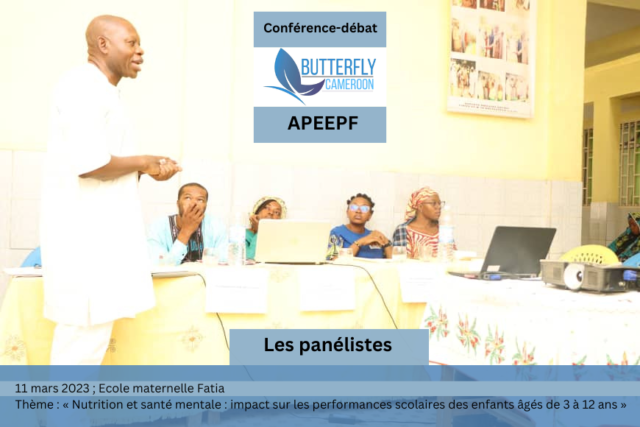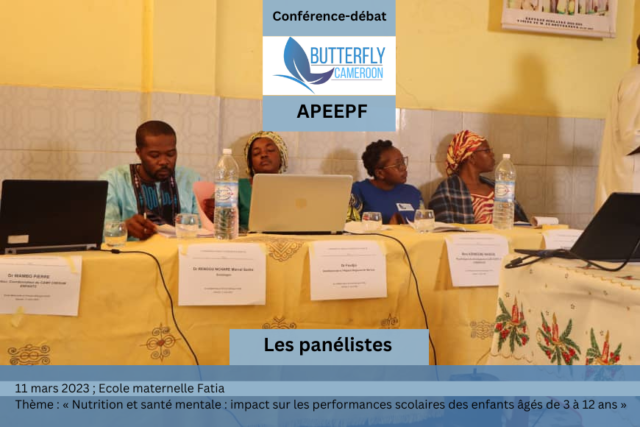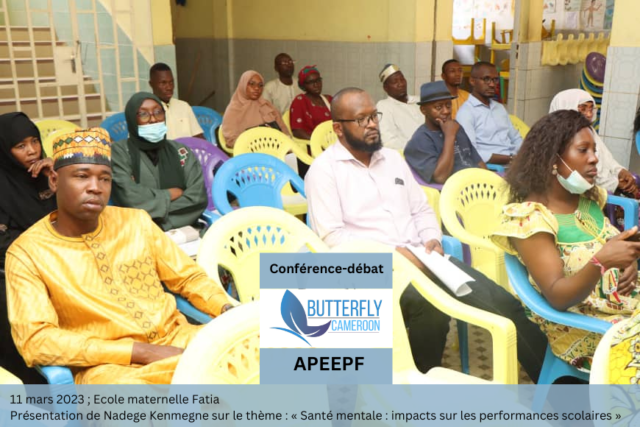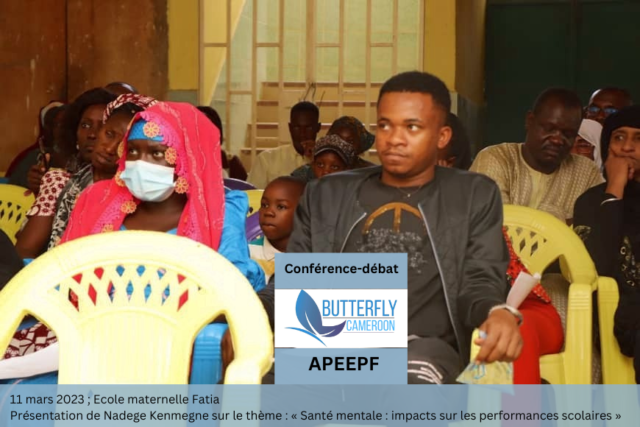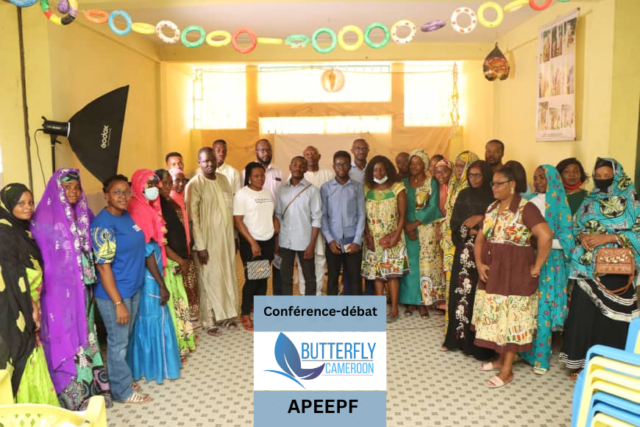The parents and teachers association of the bilingual elementary school Fatia based in Maroua, organized on March 11, 2023, a conference-debate on the theme “Nutrition and mental health: impact on school performance of children aged 3 to 12 years”. Indeed, it has been shown that better school results are dependent on good nutrition and good mental health of students.
Representing Butterfly Cameroon, Nadege Kenmegne, Regional Coordinator for the Far North, participated as a panelist along with other experts.
She brought her expertise as a developmental psychologist to sensitize parents and the educational community on the links between mental health and children’s school performance.
Nadege Kenmegne made a presentation on the theme “Mental Health: Impacts on School Performance”. During her speech she first defined mental health, which according to the World Health Organization, is a “state of well-being in which the person can achieve self-realization, overcome the normal stresses of life, do productive and fruitful work, and contribute to the life of his or her community”.
Next, she addressed the signs and symptoms of mental health disorders in youth and children. These include anxiety (fatigue, irritability, feeling overwhelmed, sleep problems, etc.), attention deficit disorder with or without hyperactivity (ADHD). For children, this implies difficulties in concentrating, completing a task with the least complexity, staying in place and waiting for their turn, or tendencies to act impulsively. Depression and other mood disorders (sadness, cheerfulness), as well as eating disorders and substance abuse, are all suggestive signs stated by the psychologist.
In a very different way, Nadege Kenmegne presented, in a participative approach, the negative impacts of poor mental health on the life and school results of children, before proposing solutions to the educational community.
In this regard, she specified that three essential factors must be taken into account. These are the reform of school and family educational styles, the recognition of all forms of intelligence in their plural expressions in children and the quality of food.
It is more about:
– providing opportunities for students or children to participate in activities that are meaningful to them and help promote well-being and reduce the risk of imbalance, both physical and mental ;
– to find strategies to increase students’ interest in social and extracurricular activities that will give them a sense of belonging and community;
– to develop all actions and activities likely to increase the students’ sense of belonging to the school and to the family;
– to be available to listen to and support students and children;
– to promote the development of good communication skills, in order to facilitate the ability to express emotions and to resolve emotional difficulties in the child.
Images :

